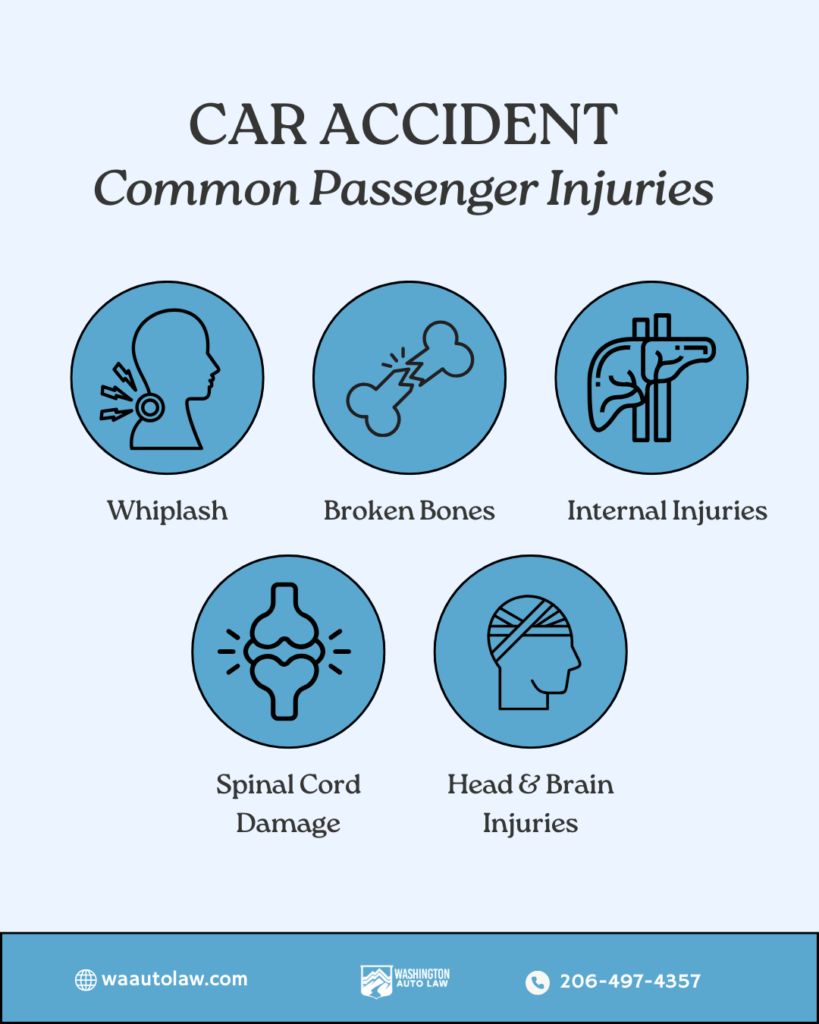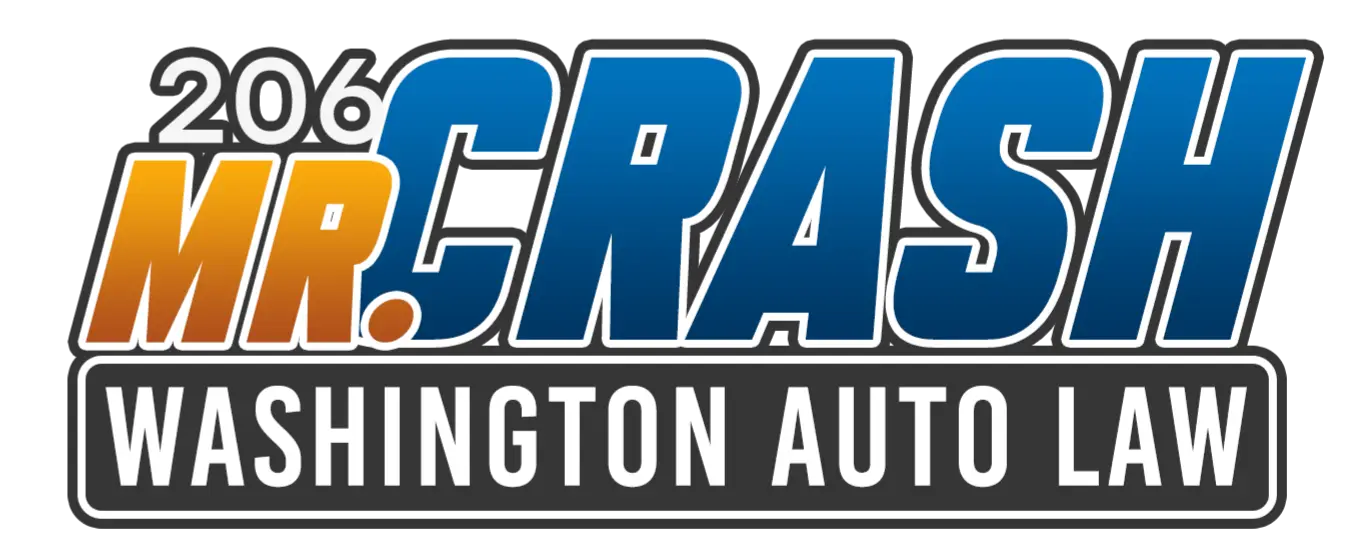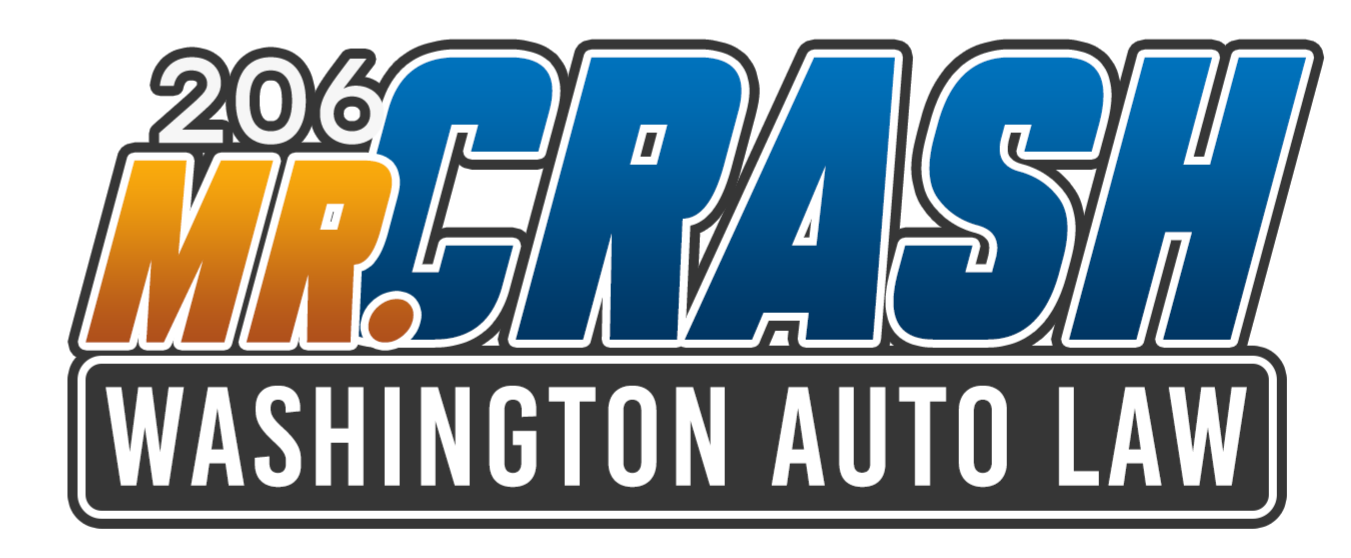Table of Contents
- Who is Liable for Your Injuries as a Passenger?
- Steps to Take Immediately After the Accident
- Filing a Claim as an Injured Passenger
- Common Passenger Injuries and Compensation
- How Washington’s Comparative Fault Laws Affect Your Claim
- Dealing with Insurance Companies
- Why You Should Contact a Car Accident Attorney
Car accidents can be traumatic experiences, and when you’re a passenger, you have little to no control over what happens. If you suffer injuries as a passenger, you may be unsure about your rights, who is responsible, and how to seek compensation. Understanding the legal process for passenger injury in car accidents in Washington can help you recover the financial support you need for medical expenses, lost wages, and other damages.
Who is Liable for Your Injuries as a Passenger?
In most car accidents, liability falls on one or more drivers involved. As a passenger, you typically aren’t at fault, which means you have the right to pursue compensation from the responsible party. Depending on the circumstances of the crash, liability may fall on:
- The driver of the vehicle you were in – If the driver of your car was negligent, such as speeding, driving under the influence, or running a red light, they may be responsible for your injuries.
- Another driver – If another motorist caused the accident, you can file a claim against their insurance policy for damages.
- Multiple drivers – In multi-vehicle accidents, multiple parties may share fault, which can make the claims process more complicated.
- Other entities – In rare cases, a third party, such as a vehicle manufacturer (for defective parts) or a government entity (for poor road maintenance), may be liable.
Steps to Take Immediately After the Accident
Taking the right steps after a car accident can significantly impact your ability to seek compensation. Here’s what you should do:
- Seek Medical Attention – Your health should be the top priority. Even if you feel fine, some injuries may not show symptoms right away.
- Call 911 – Ensure law enforcement comes to the scene and files an accident report, which can be valuable evidence in your claim.
- Collect Information – Gather the following details:
- Names, contact information, and insurance details of all drivers involved.
- Photos of the accident scene, vehicle damage, and any visible injuries.
- Witness statements and contact information.
- Avoid Admitting Fault – Even as a passenger, be cautious about what you say. Stick to the facts when speaking with law enforcement and insurance representatives.
- Consult a Personal Injury Attorney – A lawyer can help you navigate the claims process and ensure you receive fair compensation.
Filing a Claim as an Injured Passenger
As a passenger, you have several options for seeking compensation after an accident:
- Filing a claim with the at-fault driver’s insurance – This is typically the first step, as Washington follows an at-fault system where the responsible party’s insurer should cover damages.
- Using your personal injury protection (PIP) coverage – If you have PIP insurance through your own auto policy, it can cover medical bills regardless of who was at fault.
- Filing a claim with the driver of your vehicle’s insurance – If the driver of the car you were in was at fault, their insurance should cover your damages.
- Pursuing a lawsuit – If insurance claims do not fully cover your losses, you may need to file a personal injury lawsuit to seek additional compensation.
Common Passenger Injuries and Compensation
Passengers can suffer a wide range of injuries in car accidents, including:
- Whiplash and soft tissue injuries
- Broken bones
- Head and brain injuries
- Spinal cord damage
- Internal injuries

Your compensation may cover:
- Medical expenses (current and future)
- Lost wages if you’re unable to work
- Pain and suffering
- Rehabilitation and therapy costs
- Property damage (if applicable)
How Washington’s Comparative Fault Laws Affect Your Claim
Washington follows a comparative fault system, meaning that if multiple parties share responsibility for an accident, compensation is distributed based on their percentage of fault. As a passenger, this generally doesn’t apply to you unless your own actions contributed to the accident in some way, such as distracting the driver.
Dealing with Insurance Companies
Insurance companies may try to minimize payouts or delay claims. To protect yourself:
- Be cautious when speaking with adjusters – Stick to the facts and avoid providing recorded statements without legal advice.
- Document everything – Keep records of medical visits, receipts, and correspondence related to your claim.
- Consider legal representation – An experienced attorney can negotiate with insurers on your behalf and maximize your settlement.
Why You Should Contact a Car Accident Attorney
Navigating the legal process after a car accident can be overwhelming, especially when dealing with medical recovery. A personal injury attorney can help by:
- Investigating the accident to determine liability
- Handling insurance negotiations to secure fair compensation
- Representing you in court if necessary
If you or a loved one has suffered injuries as a passenger in a car accident, don’t navigate the legal process alone. Contact Washington Auto Law today for a free consultation. Our experienced team will fight for your rights and ensure you receive the compensation you deserve.

